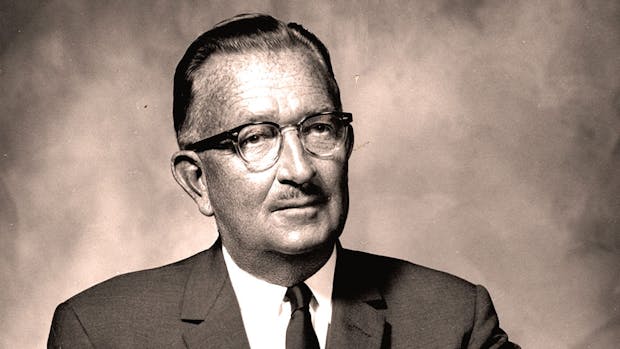meet Thomas Rowe Price Jr.

meet Thomas Rowe Price Jr.
when Thomas Rowe Price Jr. built his business and investment ideology he only thought about the long term.
popularly known as the ‘father of growth investing’, Price believed that aligning your business incentives with that of the customers was the best way for both parties to prosper.
“if you treat the customer right, he will reward you long-term. the most important asset we can have is goodwill, which is so difficult to build up and so easy to lose,” he said.
in 1937, when Price started his investment firm T. Rowe Price and Associates or T. Rowe Price as it is known today, he found himself at odds with the commission-based investing business model. he felt that it was unethical and not in the clients’ best interests.
he believed that a compensation system based on an annual percentage fee of total assets under management (AUM) aligned a fund manager's interests with his clients.
along with building long-term relationships with his customers, Price popularized long-term growth investing at a time when cigar-butt value investing was really popular.
“the growth stock theory of investing requires patience, but is less stressful than trading, generally has less risk, and reduces brokerage commissions and income taxes,” he said.
understanding growth investing
growth investing is a strategy of identifying and investing in quality companies that are likely to grow at an above-average rate compared to their peers. it differs from value investing as the latter is focused on identifying stocks that are trading below their intrinsic value.
or in Price’s own words: “growth stocks can be defined as shares in business enterprises which have demonstrated favorable underlying long-term growth in earnings and which, after careful research study, give indications of continued secular growth in the future.”
with growth investing in mind, his fund was able to identify and invest in firms like IBM and Xerox which generated substantial returns for their investors.
“even the amateur investor who lacks training and time to devote to managing his investments can be reasonably successful by selecting the best-managed companies in fertile fields of growth, buying their shares and retaining them until it becomes obvious that they no longer meet the definition of a growth stock,” Price would say.
Price stuck to his beliefs and went against the conventional wisdom of long-established investment firms. he had a different view towards investing and broker compensation and he built a business on the back of it which has survived and grown till date and has also created and preserved wealth for their customers.



